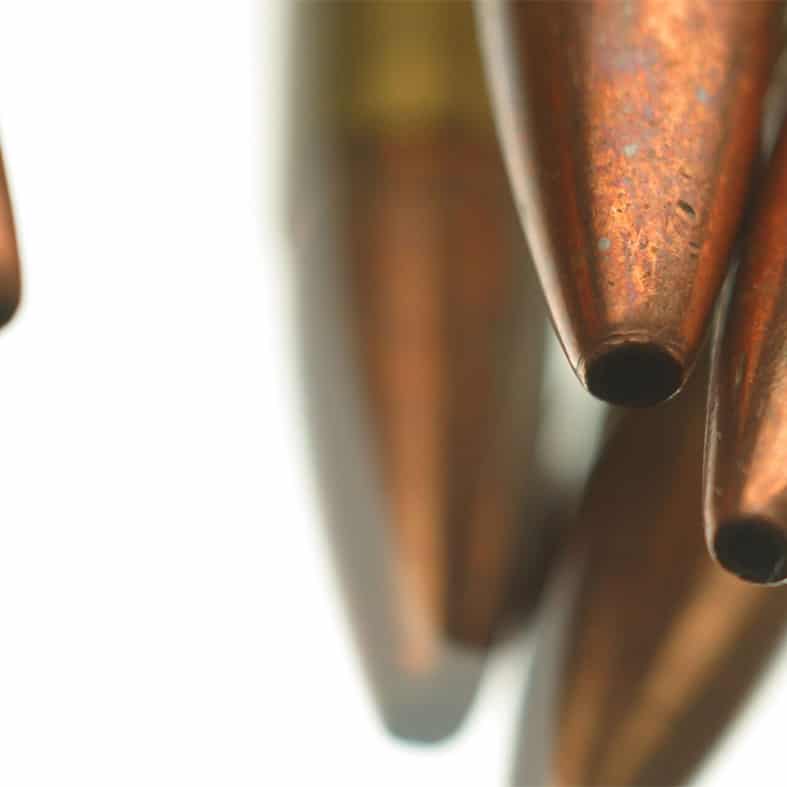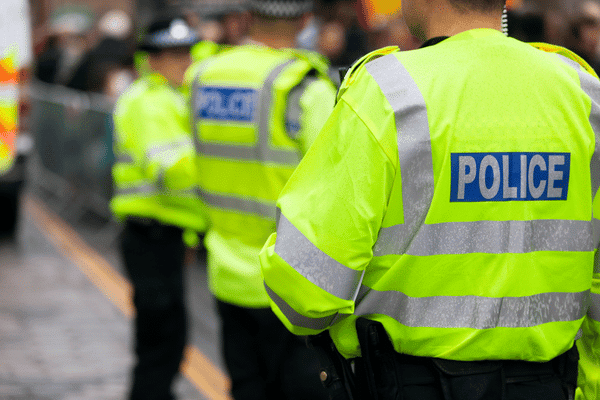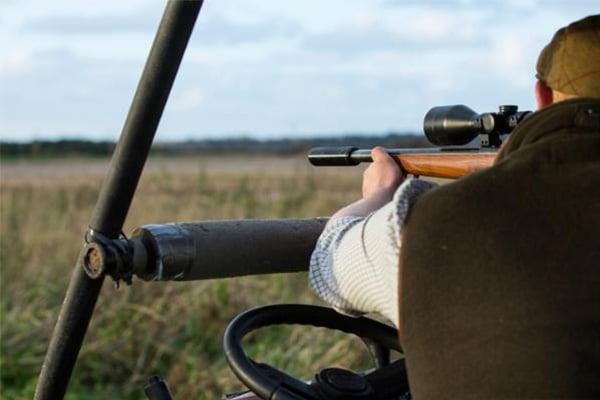
UK firearms licensing is a postcode lottery
BASC has published its 2020 firearms licensing league table, highlighting a stark lack of consistency across police forces in England and Wales.
Get information on the legal shooting season for mammals and birds in the UK.
Learn about our current conservation projects and how you can get involved.
Comprehensive information and advice from our specialist firearms team.
Everything you need to know about shotgun, rifle and airgun ammunition.
Find our up-to-date information, advice and links to government resources.
Everything you need to know on firearms law and licensing.
All the latest news and advice on general licences and how they affect you.


… so if you want to make an impact in your speech why not throw in a sporting metaphor? Scarcely a day goes by when you do not hear a phrase that originates from the world of shooting, says former Shooting and Conservation editor Jeffrey Olstead.
It was that great man of the people, Trotsky, addressing his troops before battle, who concluded “we shall shoot them down like pheasants”. I’m not sure how many members of the Red Army frequently shot pheasants, but he made his point.
Throughout history, many writers have used shooting metaphors when seeking a really vivid image. Shakespeare turned to the language of falconry when he wanted to make a particularly powerful statement. Othello says of Desdemona’s imagined infidelity “though that her jesses were my dear heartstrings, I’d whistle her off and let her down the wind to prey at fortune.” Sadly, you won’t find many references to shooting in Shakespeare, though in Henry IV Part 1, Hotspur sneers about an unnamed cowardly courtier who bleats, somewhat anachronistically, “… but for these vile guns, he would himself have been a soldier”.
It was in the Bard’s later years that flintlocks were developed and about the time of the Civil War that the first shooting metaphors started to come into the language. Over the years they have become clichés, frequently used by those who have little or no understanding of their true meaning. Take, for instance, the phrase ‘a flash in the pan’; most people today probably think that refers to a culinary incident – a premature flambé.
But how many shooters actually know what it means? The downbeat dictionary definition is “a promising start followed by failure”, which rather underestimates the power of the image. In a flintlock the spark from the flint ignites a small amount of powder in the lock pan that flashes across to the touch hole and thereby ignites the main charge. Bang! Or not bang, if it doesn’t hit the main charge and there is just a flash in the pan – a spectacular burst of fire and smoke followed by… nothing much.
This highlights the essential requirement to ‘keep your powder dry’; something not necessary with the metal cartridge, but the phrase lingers on.
The difficulties of flintlocks have produced other common metaphors that have long outlasted their origins. To ‘hang fire’ is another example, and really a variation of a flash in the pan. Faulty powder might lead to slower ignition and a pause between pulling the trigger and discharge. The phrase was most commonly used at the end of the 18th century. By the mid-19th century the problem seems to have been resolved, but even today that can happen with a dodgy primer, and we all know the rules about misfires.
One way to avoid unintentional firing – at least in theory – is to have the gun ‘at half-cock’. With some early guns this was necessary for loading and later was seen as a safety measure. It kept the firing pin away from the primer and, since it was not fully cocked, the hammer would hit the primer with too little force to fire the gun. A theory contradicted by a number of maimed shooters. And there was always the problem that if a snap shot was required, you might forget that the gun was only half-cocked, much to the joy of the charging buffalo.
But sometimes the sporting connection is not obvious. To ‘wipe one’s eye’, hitting a bird that the other Shot has missed, is first recorded in Suffolk in 1832 and has no clear connection with shooting, though that is where it originated.
When the noted shooter Guy Ritchie made a film entitled Lock, Stock and Two Smoking Barrels, many were confused by the connection they imagined with a pub’s cellar. We who are more enlightened recognise all the necessary parts of a firearm. It’s odd, though, that a phrase from such a small industry should have such wide acceptance.
But even today we constantly use images drawn from shooting sports. Guns are powerful and spectacular; they produce an impact so, if you are seeking a phrase to create that effect, where better to look than the shooting world?
Scarcely a day goes by when you do not hear of someone who is trigger-happy, gives it both barrels, blazes away, uses a scatter-gun approach, is looking for a magic bullet or shoots from the hip. The latter suggests something wild and inaccurate, but there is an instructor at one of the posh shooting schools who can demolish clays when doing just that. And his performance isn’t just a flash in the pan.

BASC has published its 2020 firearms licensing league table, highlighting a stark lack of consistency across police forces in England and Wales.

The announcement made by Cumbria Police reinforces the need for reform of firearms licensing in England and Wales.

BASC has challenged North Yorkshire Police’s decision to halt firearms certificate grants, pressing for it to be reversed as a matter of urgency.
Sign up to our weekly newsletter and get all the latest updates straight to your inbox.
© 2023 British Association for Shooting and Conservation. Registered Office: Marford Mill, Rossett, Wrexham, LL12 0HL – Registered Society No: 28488R. BASC is a trading name of the British Association for Shooting and Conservation Limited which is authorised and regulated by the Financial Conduct Authority (FCA) under firm reference number 311937.
If you have any questions or complaints about your BASC membership insurance cover, please email us. More information about resolving complaints can be found on the FCA website or on the EU ODR platform.
This website uses cookies so that we can provide you with the best user experience possible. Cookie information is stored in your browser and performs functions such as recognising you when you return to our website and helping our team to understand which sections of the website you find most interesting and useful.
Strictly Necessary Cookie should be enabled at all times so that we can save your preferences for cookie settings.
If you disable this cookie, we will not be able to save your preferences. This means that every time you visit this website you will need to enable or disable cookies again.
This website uses Google Analytics to collect anonymous information such as the number of visitors to the site, and the most popular pages.
Keeping this cookie enabled helps us to improve our website.
Please enable Strictly Necessary Cookies first so that we can save your preferences!
More information about our Cookie Policy